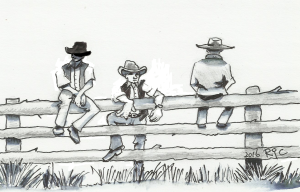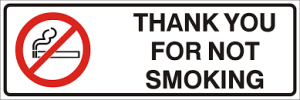“He’s all hat and no cattle.” If you say that about someone, it means he’s full of big talk but doesn’t really do anything, or he pretends to be more powerful or important than he really is. The original meaning is that he dresses like a cowboy or a rancher (the owner of a big cattle farm), with a cowboy hat, but he doesn’t actually own any cattle.

- The mayor is great at giving speeches, but he hasn’t really improved anything in our city. He’s all hat and no cattle.
- A lot of job applicants have impressive resumes, but we need to interview them carefully to be sure they really have the skills we need. We don’t want to hire someone who’s all hat and no cattle.
English has a lot of idioms with the same meaning, mostly in the form “all .. and no ….” Here are a few others:
- all show and no substance
- all talk and no action
- all bark and no bite
- all sizzle and no steak (“sizzle” is the sound steak makes when it’s cooking)
A note about cattle
“Cattle” means 牛, but it is only plural. You can say “he has a lot of cattle,” but you can’t talk about “a cattle.” If you want to use a number with the word “cattle,” you normally use the word “head” as a quantifier (for example, “500 head of cattle”). In this way, English is very similar to Chinese (五百頭牛).
If you want to talk about one 牛, there are several different words you can use.
- A cow is an adult female. We get milk from cows. Sometimes “cow” is used in a general way to talk about cattle of either sex.
- A bull is an adult male. Cows are calm, slow-moving animals, but bulls are aggressive and violent, so the feeling of the two words is very different. Don’t say “cow” if you mean “bull”! For example, in Spain people like to watch bullfights, but a “cowfight” would be pretty boring.
- A steer is a castrated (閹割) bull, usually raised for meat. The beef we eat comes from steers.
- An ox (plural oxen) is also a castrated bull, but it is used for work, not for meat. Wild cattle of both sexes are also called “oxen” sometimes.
- A calf is a baby cow or bull.
Eton Royal English School
伊敦皇家英語
彰化市民族路150號
Phone: (04)727-2177
E-mail: eton.changhua@gmail.com
Facebook: @etonenglish





